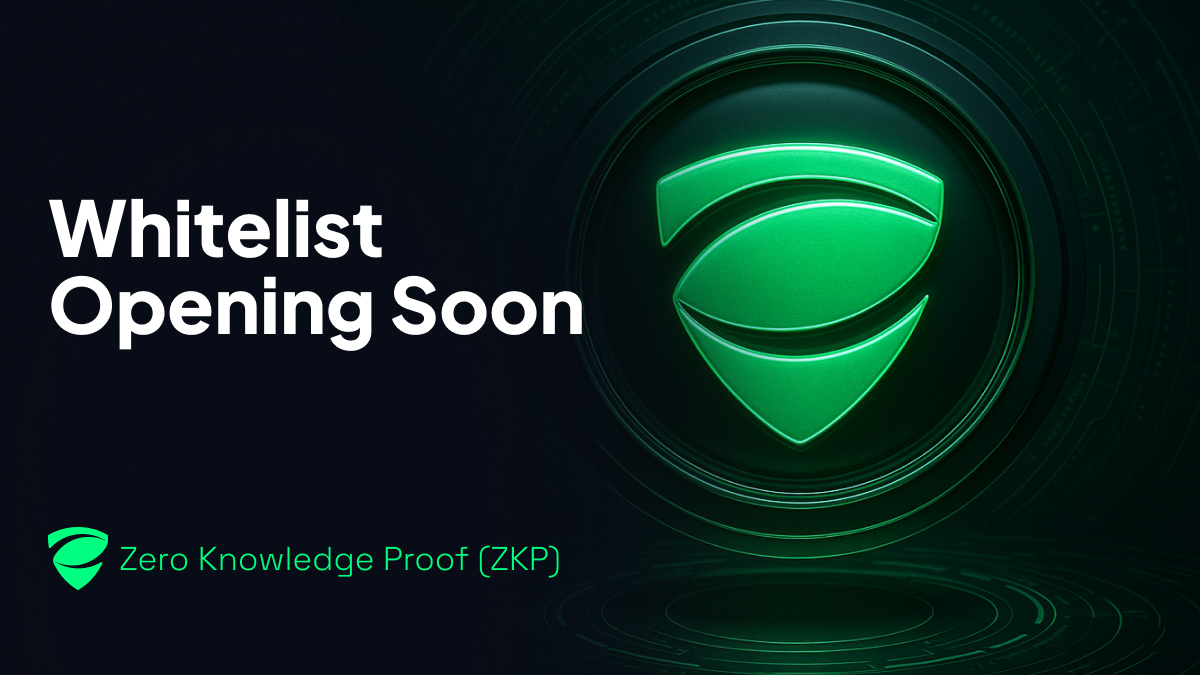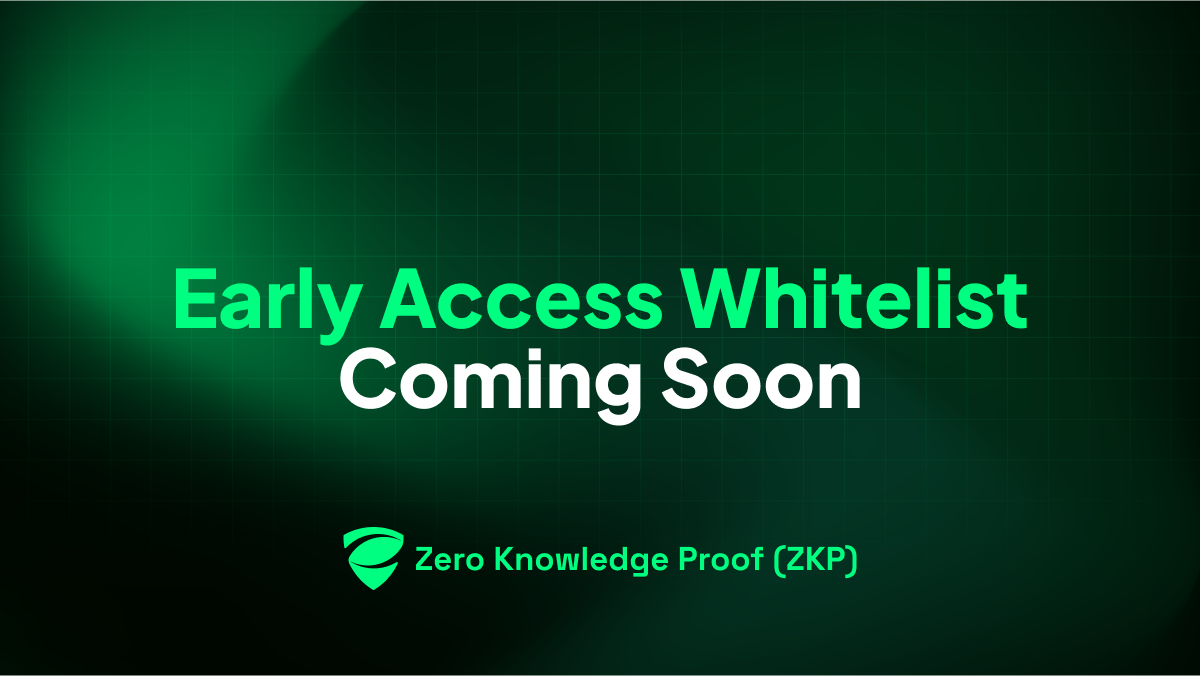The next wave of blockchain progress isn’t about faster transactions or higher yields, it’s about privacy and connection working together. Today, every bridge between networks leaves trails of exposed data, defeating the purpose of decentralization. Zero Knowledge Proof (ZKP) fixes this at the root.
Designed to be private by default and interoperable by design, it enables seamless movement between major chains like Ethereum and Solana without revealing user information. This isn’t just another blockchain, it’s the foundation for a new era of secure, borderless interaction. With the whitelist for Zero Knowledge Proof (ZKP) opening soon, early participants will gain entry before multichain privacy evolves from a rare advantage into the default expectation across Web3.
The Cross-Chain Challenge
Moving assets across blockchains sounds easy in theory. But in practice, it’s a fragmented mess. Each network has its own consensus rules, fee systems, and privacy gaps. Bridges often become the weakest link, centralized relayers, data exposure, and high gas fees make interoperability a gamble. Zero Knowledge Proof (ZKP) takes a completely different approach. It embeds cross-chain interoperability directly into its Layer 1 architecture, not as an afterthought.
Here’s how it changes the game:
- Native bridges with zero-knowledge proofs for secure validation
- Private verification across Ethereum, Solana, and future networks
- No exposure of transaction data, even when crossing chains
By fusing privacy with scalability, Zero Knowledge Proof (ZKP) ensures that every transfer between networks remains verifiable, fast, and private. The whitelist represents more than early access, it’s the pass to a future where interoperability doesn’t come at the cost of anonymity.
Privacy Without Isolation
Traditional privacy chains often work like walled gardens, safe but disconnected. Users enjoy anonymity but lose the ability to interact freely with other networks. Zero Knowledge Proof (ZKP) solves this trade-off. Its privacy layer is fully compatible with external ecosystems, meaning you can transact privately while still bridging, swapping, or staking across networks.
It’s built on two core cryptographic systems:
- zk-SNARKs for small, efficient proofs ideal for financial transactions
- zk-STARKs for transparent, quantum-resistant scaling
Together, they ensure complete privacy without restricting functionality. Instead of choosing between privacy and usability, Zero Knowledge Proof (ZKP) gives both.
As interoperable privacy becomes the next competition among blockchains, this project already holds the lead. When bridges become crowded and fees climb, early access to this ecosystem could be the difference between joining the movement and chasing it later.
A Modular Foundation for Growth
Every piece of Zero Knowledge Proof (ZKP) is built to adapt. Its modular architecture separates the core protocol, privacy layer, and scaling engine. That means future upgrades, whether in performance, quantum security, or interoperability, can be added without network forks or disruption.
This flexibility makes Zero Knowledge Proof (ZKP) more than a single-purpose chain. It’s a living network capable of evolving with user demand.
Developers benefit from:
- SDKs for building private DApps quickly
- Plug-and-play modules for zk-rollups and recursive proofs
- Built-in tools for smart contract verification and auditing
The result is a system that stays ahead of the curve while remaining stable for builders and users. As the whitelist opening nears, joining early could mean entering a modular ecosystem before the broader crypto world catches on to interoperable privacy as the next major standard.
Real-World Utility Meets Future-Proof Security
Zero Knowledge Proof (ZKP) isn’t just a privacy tool, it’s a full ecosystem ready for real-world use. Its applications stretch from finance and healthcare to gaming and identity verification. Businesses can prove solvency without revealing sensitive data. Patients can share medical proofs without exposing records. And gamers can verify ownership of NFTs privately, across multiple chains.
Security remains core to its vision:
- Formal verification ensures contract correctness
- On-chain auditing tools continuously monitor for anomalies
- Post-quantum readiness through zk-STARK integration
With these systems in place, Zero Knowledge Proof (ZKP) becomes more than a privacy-first blockchain, it’s a secure foundation for the next generation of interoperable applications. And with the whitelist nearing, access at the ground floor means entering before the bridges become the busiest routes in blockchain history.
Final Take
The race for interoperable privacy is entering its defining moment, and Zero Knowledge Proof (ZKP) stands firmly in the lead. By fusing zero-knowledge cryptography with seamless cross-chain architecture, it creates a blockchain network that connects ecosystems without exposing user data. Its modular, scalable foundation means it’s not just built for today’s blockchains, but ready for what comes next. As the whitelist nears, early participants will gain entry before interoperability becomes the next crowded frontier. Zero Knowledge Proof (ZKP) blockchain delivers what other networks only aim for, true privacy, real scalability, and effortless cross-chain access. The era of private multichain connectivity is coming fast, and this is where that transformation begins.
Disclaimer: This media platform provides the content of this article on an "as-is" basis, without any warranties or representations of any kind, express or implied. We assume no responsibility for any inaccuracies, errors, or omissions. We do not assume any responsibility or liability for the accuracy, content, images, videos, licenses, completeness, legality, or reliability of the information presented herein. Any concerns, complaints, or copyright issues related to this article should be directed to the content provider mentioned above.







